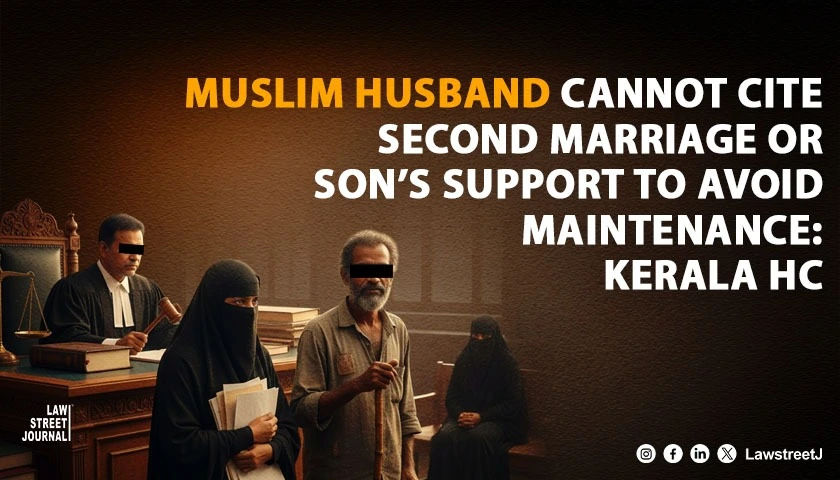Kerala: The Kerala High Court has ruled that a Muslim husband cannot escape his statutory duty to maintain his first wife by pointing to financial responsibilities towards a second wife or by relying on the fact that their adult son is supporting her.
Justice Dr. Kauser Edappagath delivered the decision while dismissing two connected revision petitions filed by the husband challenging maintenance orders passed by the Family Courts at Thrissur and Kunnamkulam.
The husband had argued that he lacked the means to pay maintenance, claimed that his wife was running a beauty parlour, and contended that their son was providing for her. He further asserted that because he had entered into a second marriage, he was obliged to maintain his new wife as well, leaving him unable to pay his first wife.
The Court found no evidence to support his claim that the wife had an independent income. It also noted that the husband had spent several decades working in the Gulf and was therefore presumed to have sufficient resources. It further held that his subsequent marriage—contracted while the first marriage was still subsisting—could not diminish his financial responsibility to his first wife.
In a detailed discussion on Muslim personal law, the Court underscored that polygamy is not an unconditional right. Polygamy, the Court said, is an exception permitted only when the husband is capable of treating all wives equally, including in matters of maintenance. A man who chooses a second marriage cannot then rely on that decision to reduce or avoid his obligations to the first wife.
The Court also rejected the contention that a woman cannot seek maintenance from her husband if she is supported by her children. The statutory framework under Section 144 of the Bharatiya Nagarik Suraksha Sanhita (corresponding to Section 125 of the CrPC) treats a wife’s right to maintenance from her husband as independent of the obligation of children to support their parents. Financial assistance from a son does not absolve the husband of his own duty, the Court clarified.
On the question of separate residence, the Court held that a Muslim wife who lives apart because her husband contracted another marriage cannot be denied maintenance. Such separation constitutes sufficient reason under Section 125(4) CrPC (now Section 144(4) BNSS), the Court observed, relying on earlier precedent.
Finding no infirmity in the Family Courts’ orders, the High Court upheld the maintenance awarded to the first wife and confirmed the dismissal of the husband’s claim seeking maintenance from his son.
Case Title: Vappinu v. Fathima and connected case




![Kerala HC Quashes 498A Dowry Harassment Case Against Live-In Partner, Citing Lack of Relative Status [Read Order]](/secure/uploads/2023/08/lj_5693_1057c042-1e57-4e27-8c9e-25af0ec38ec4.jpg)
![Watching porn on mobile: Kerala HC highlights importance of mother cooked meals, outdoor sports [Read Order]](/secure/uploads/2023/09/lj_9155_Parental_supervision_of_mobile_phone_usage.jpg)
![Lakshadweep MP Mohammed Faizal Disqualified from Lok Sabha After Conviction Suspension Plea Rejected by Kerala High Court [Read Notice]](/secure/uploads/2023/10/lj_9640_87b5fd97-0e05-4ff8-9a99-3be1e4446192.jpg)




